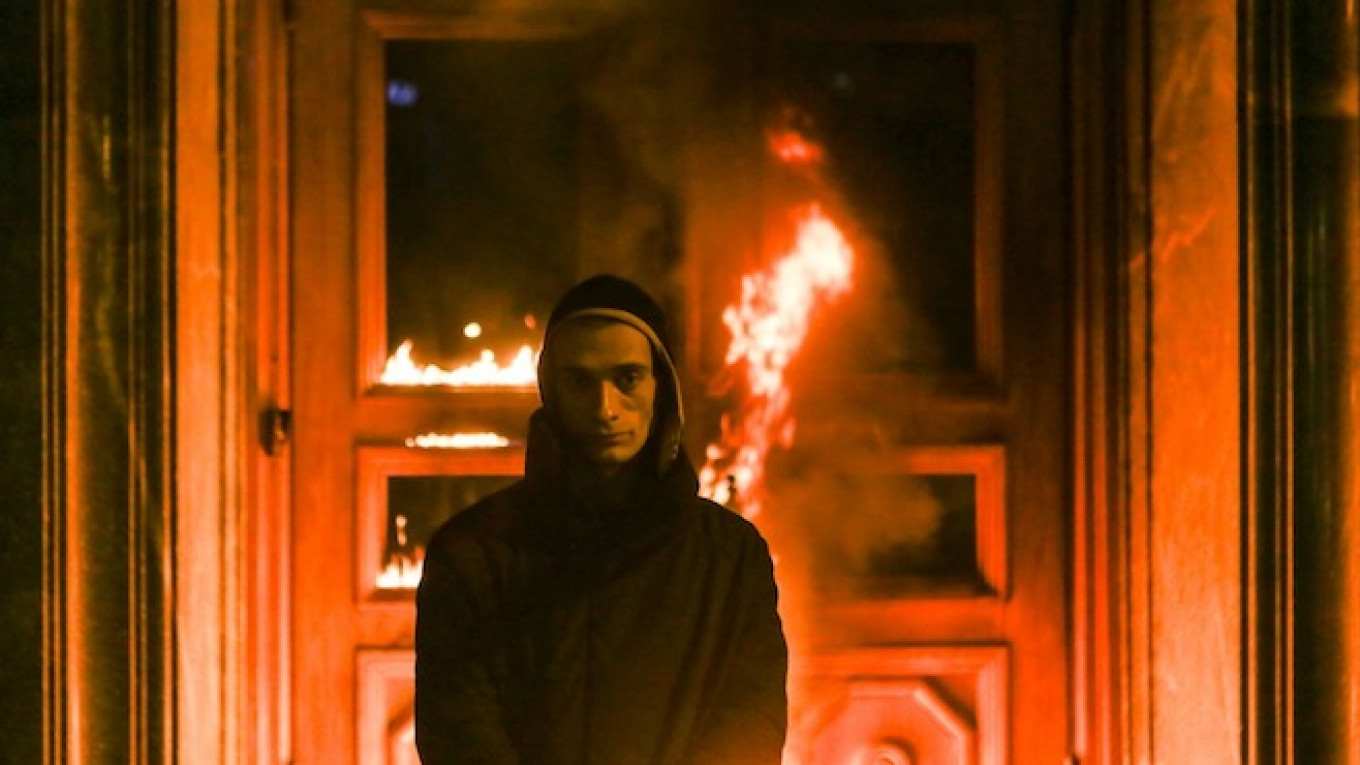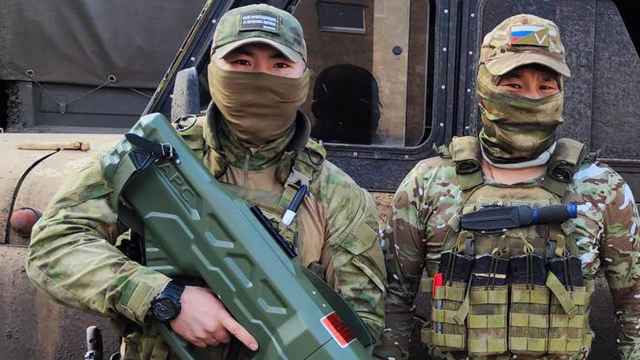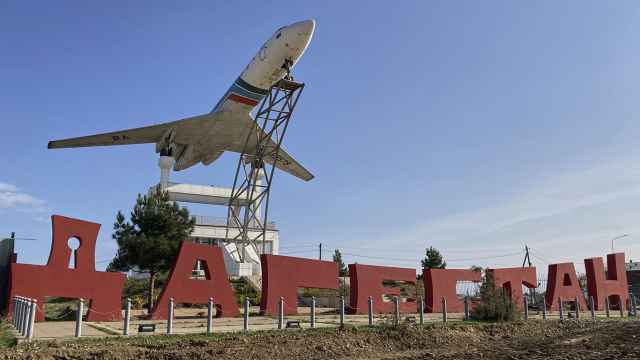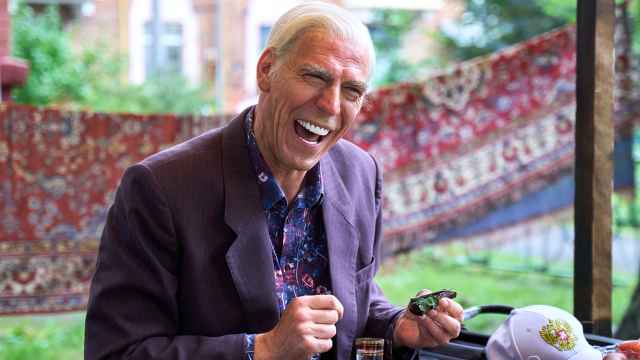 Pyotr Pavlensky
Pyotr PavlenskyI am being held at the Butyrsky detention center. Life is calm here, and almost orderly. I say "orderly" because my routine here is structured by prison rules. And I write "almost" because the human body and psychophysiology are phenomena of the natural world and not the end-product of bureaucratic regulation.
You might say that here in prison, the bureaucracy, which transforms human beings into standardized biological products, and the natural world are constantly locked in a clinch. Eating, sleeping, and communicating — with oneself and the world — take place within that interaction.
The price we pay for this interaction of opposing forces is, on the one hand, the preservation of our own subjectivity, and, on the other hand, our transformation into automatons habituated to our conditions.
My most recent performance art protest — which I call "Lubyanka's Burning Door" — was very important for me. Here is how I understand it: the threat to Russia dating back to the Red Terror, the O.G.P.U. and the N.K.V.D. security agencies, is still part of reality, and not an unfortunate historical aberration that someone might mention in a talk on the 1920s and 1930s or while standing by the Solovetsky Stone in dank, miserable weather.
The threat did not die away in the distant past. It is very much alive and still hangs over us today. We must be aware of how the Russian people have come to feel safe and secure in its shadow. The dark events and institutions from the past live on in today's "security services." They have insinuated their way into the fabric of Russian society and they "care" for us day in and day out.
Here in prison, there's no point to thinking about what I'll do next. Reality is too unpredictable. When I nailed my scrotum to the cobblestones of Red Square in "Fixation," my 2013 art performance, I couldn't have imagined that in less than three months I'd be in Ukraine for the first time and become a part of Maidan.
Art in Russia today — or in any historical period or country of the world — has always been the search for meaning and a form to express it. Meaning is tantamount to purpose, and art primarily concerns itself with the purpose of human life. What is life? Is it submission or liberation? Or is it consumption of the self, of others, of food — which my jailors are bringing me even as I pen these words — or the product of escapism?
Here in prison I see a great many people on drug charges — specifically Article 228 of the Criminal Code. The prisoners call drug use "the people's crime." There are so many people here on those charges that I begin to understand that the idea of total escapism is fundamental to Russians today.
The meaning of time, the meaning of life — these are the only resources a human being has. This is the focus of art. Art works with these resources, providing a commentary on them and giving them new meaning. That is what political art is.
Of course, there is also decorative art. But from the outset, it was based on the premise that the purpose of art is to find paying customers and then give them exactly what they want. That is the way a prostitute thinks, and political art will always stand in direct opposition to it.
Pyotr Pavlensky is a Russian artist, currently in pre-trial detention for his performance on Lubyanka.
A Message from The Moscow Times:
Dear readers,
We are facing unprecedented challenges. Russia's Prosecutor General's Office has designated The Moscow Times as an "undesirable" organization, criminalizing our work and putting our staff at risk of prosecution. This follows our earlier unjust labeling as a "foreign agent."
These actions are direct attempts to silence independent journalism in Russia. The authorities claim our work "discredits the decisions of the Russian leadership." We see things differently: we strive to provide accurate, unbiased reporting on Russia.
We, the journalists of The Moscow Times, refuse to be silenced. But to continue our work, we need your help.
Your support, no matter how small, makes a world of difference. If you can, please support us monthly starting from just $2. It's quick to set up, and every contribution makes a significant impact.
By supporting The Moscow Times, you're defending open, independent journalism in the face of repression. Thank you for standing with us.
Remind me later.






